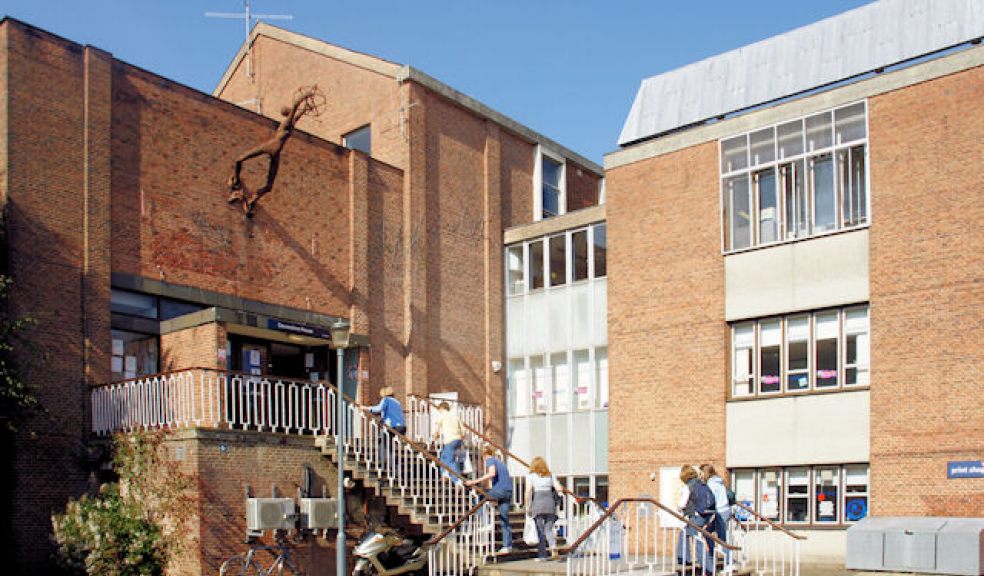
University of Exeter joins £18m network
Exeter joins £18 million industry-academia networks scheme to boost industrial biotechnology and bioenergy
The University of Exeter is set to benefit from a share of an £18million initiative designed to boost interaction between academic research and industry in biotechnology and bioenergy.
The Biotechnology and Biological Sciences Research Council (BBSRC) has funded 13 collaborative ‘Networks in Industrial Biotechnology and Bioenergy’ to help promote the translation of research into tangible benefits for the UK.
A leading academic from Exeter’s Engineering department is part of one such cross-disciplinary research community – called IBCarb - Glycoscience Tools for Biotechnology and Bioenergy.
Professor Stephen Eichhorn, from the College of Engineering, Mathematics and Physical Sciences, welcomed the foundation of the new, pivotal networks.
He said: “This is a great opportunity to be part of an emerging field of glycosciences. This research area promises to touch upon new frontiers in medicine through to the next generation of fuels and materials.”
The networks pool skills from academia and business to develop research projects with the potential to overcome major challenges in the industrial biotechnology and bioenergy arena. They also allow new members to come on board with skills that can benefit the group.
The networks will drive new ideas to harness the potential of biological resources for producing and processing materials, biopharmaceuticals, chemicals and energy.
Each has a particular focus, such as: realising the potential of food waste and by-products to produce chemicals and biomaterials; unlocking the industrial biotechnology potential of microalgae; producing high value chemicals from plants; and making use of plant cell walls (lignocellulosic biomass) to produce chemicals and biofuels.
The IBCarb network will create an interdisciplinary group of scientists at all stages of their careers to come together to place the UK at the centre of glycobiotechnology to tackle issues with the development of new technologies, working closely with industrial partners and shaping and driving UK and EU policy in this area.
Speaking about the launch of the new initiative, Universities and Science Minister David Willetts said: “To get ahead in the global race we need to turn our world-beating science and research into world-beating products and services, as set out in our Industrial Strategy.
"These networks will unlock the huge potential of biotechnology and bioenergy, such as finding innovative ways to use leftover food, and creating chemicals from plant cells." Dr Celia Caulcott, BBSRC Executive Director, Innovation and Skills, said: “These networks bring together a number of internationally competitive, cross-disciplinary communities capable of undertaking innovative research that will attract further investment from the UK and abroad.
“They provide a new opportunity for the research community to make significant contributions to the UK’s bioeconomy: driving transformational bioscience into industrial processes and products; creating wealth and jobs; and delivering environmental benefits, such as CO2 reduction."
Each network includes funds to support a range of small proof of concept research projects, to demonstrate potential benefits for end user industries. The networks will then work with industries to investigate these research challenges further. Many of these ideas and collaborative links will build into the next phase: the Industrial Biotechnology Catalyst, funded by BBSRC, the Technology Strategy Board (TSB) and the EPSRC, to be launched in early 2014 to support the development of ideas from concept to commercialisation.
The catalyst has benefited from recent cash injections and will now offer £45M funding to support major integrated research projects involving collaborations between academic and business communities that will offer clear commercial potential.
These new schemes form the central part of BBSRC's strategy to support the development of Industrial Biotechnology and Bioenergy (IBBE) as a key component of the UK bioeconomy and will help to provide sustainable processes for producing bio-based alternatives products which currently rely on petrochemicals.




















